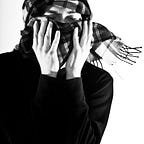We’re In This Together, Friend(ead)ly Neighbors
This virus in a weird way has brought a communal feel. Think about it, we’re in this together as a people, we’re neighbors, and though we are more apart than ever we’re apart together. It’s strange. It’s like there’s a common enemy and we’re all in the battle as a team fighting against it. And our priorities are aligned (for the most part) and we are thinking very similarly across the world:
Don’t get the virus.
Don’t spread the virus.
Quarantine.
Stay home.
Social distance yourself from others when going somewhere.
Wash your hands.
Wear gloves.
Wear masks.
Be aware and cautious.
When else in time have we thought so similarly at the same time as a people? When have we experienced a virus so strong, ready to attack literally anyone? Rich or poor, any class, any race, any gender, any age, it doesn’t matter, you’re vulnerable. This virus is affecting people, period. If you’re a person you’re at risk, simple as that. No racism, no bias, nothing, just if you’re a person you’re a target.
But the crazy and genius part of this coronavirus is how it spreads, which is usually from people who have it and transport it unknowingly. Blup, it’s basically using people to grow. Imagine, we may be a team against the virus, but by being a team, together, we may be attacking each other without even knowing it and helping the virus win. Especially if the virus is dormant, not giving symptoms to show, and then stealthily spreading, jumping from one infected person to another. Is that not mind-boggling? What is one to do? Be in the fight together, but don’t fight together? Perhaps. Or maybe we should think of fighting in another way, use our brain and mind so we can work together while we are apart. This is something that many have actually been doing lately, pretty much communicating in code as they pass by one another on the street, in the grocery store, at the park. There’s a new kind of connection we have. Worldwide.
The aim is to defeat the culprit so we can go back to “normal”, right? But what is even actually “normal”? Will we go back to living how we were before the virus after the virus? Do we even remember how things used to be? Did things make sense? Or has the virus shown the true colors of systems, governments, institutions, and countries across the world, some of which may not be so pretty? Has this virus brought to light who we really are? How many industries have been broken because of the spread? Are we as strong as we thought we were? Are we open to admitting flaws and weaknesses across the world and building a “new normal” together? A better future? With more love and respect. With more care and compassion. With new worldwide standards and priorities.
If you’re old enough you might remember this idea of visiting your new neighbor who just moved in, maybe bringing over some sugar and giving a warm welcome. But in the past however many years that’s no longer a thing. Times have changed. How many people actually even know their neighbors? How many people do something for others? How many people give the world and the universe something beautiful? How many say “Thank You” and do nice things when no one is looking?
A newer idea to think about is how you can feel so alone in a city full of people. You can be in NYC and lonely as ever, despite the millions of people around. This is before the virus. I think that juxtaposition is interesting. Why would one feel that way? Because of how others treat them? The lack of welcome? The feeling of having no neighbor even say “Hi”? I don’t know. Will the end of this virus bring a more togetherness to us as a people? I also don’t know. But right now it feels like there’s something going on.
